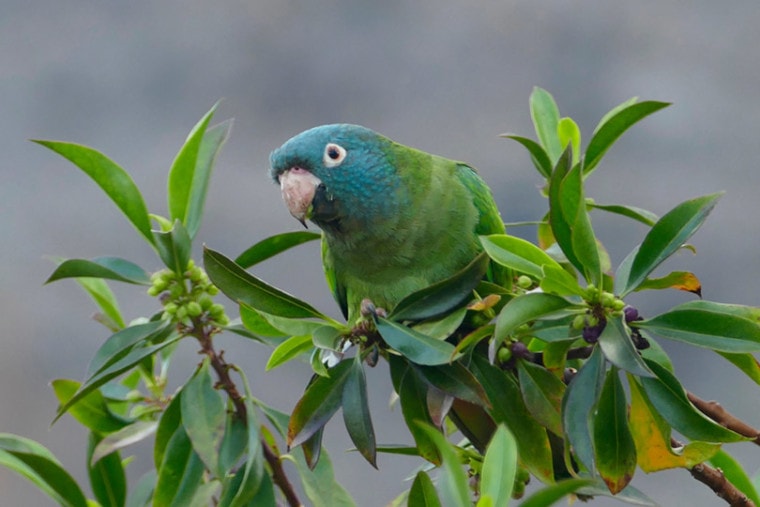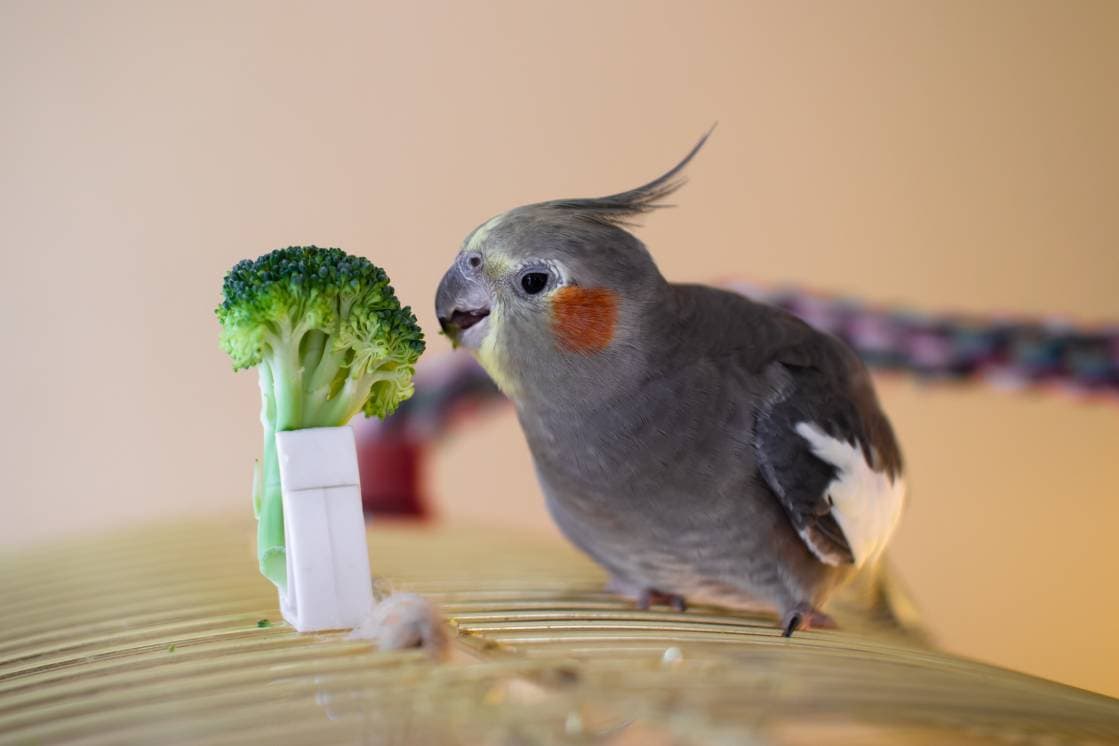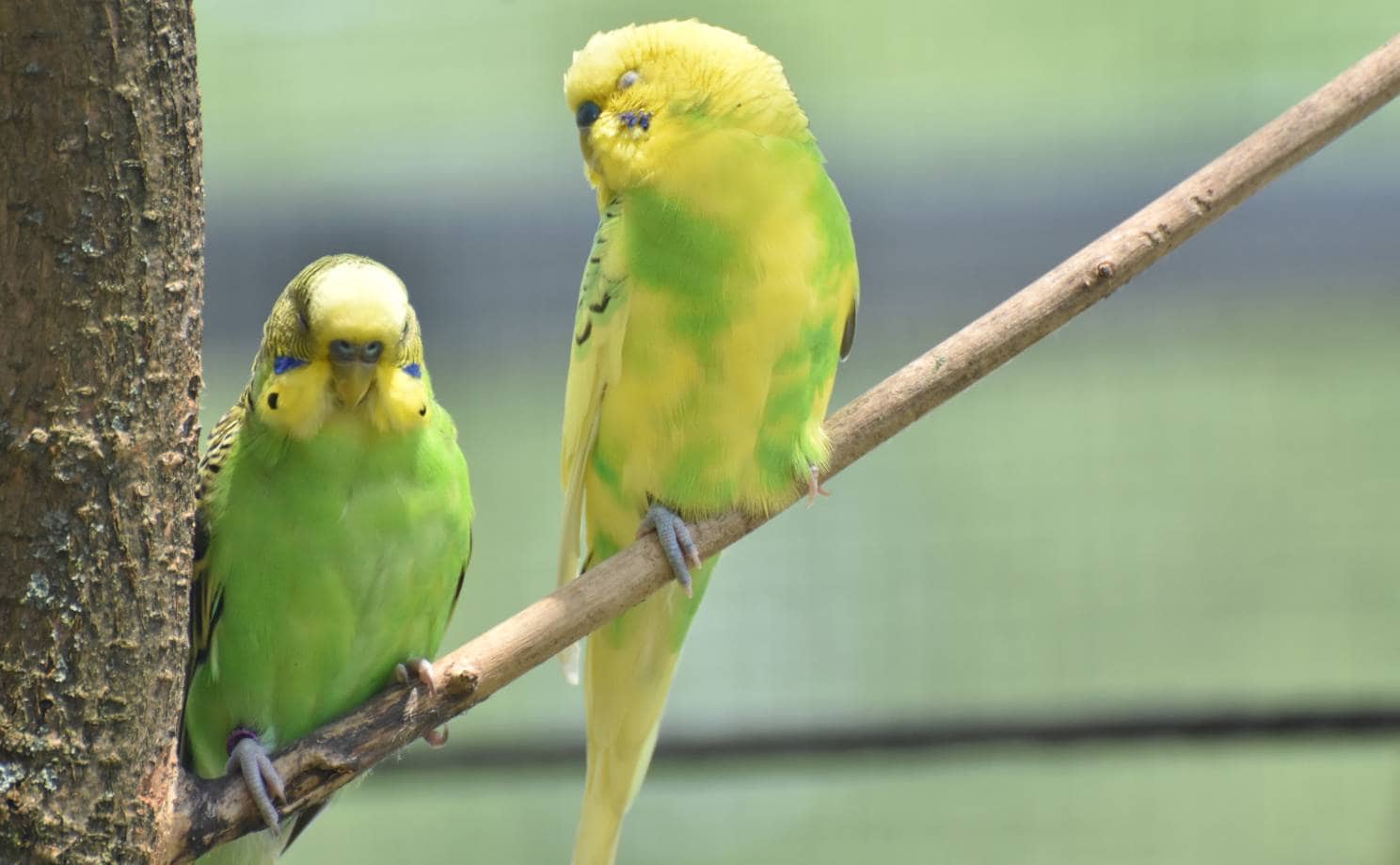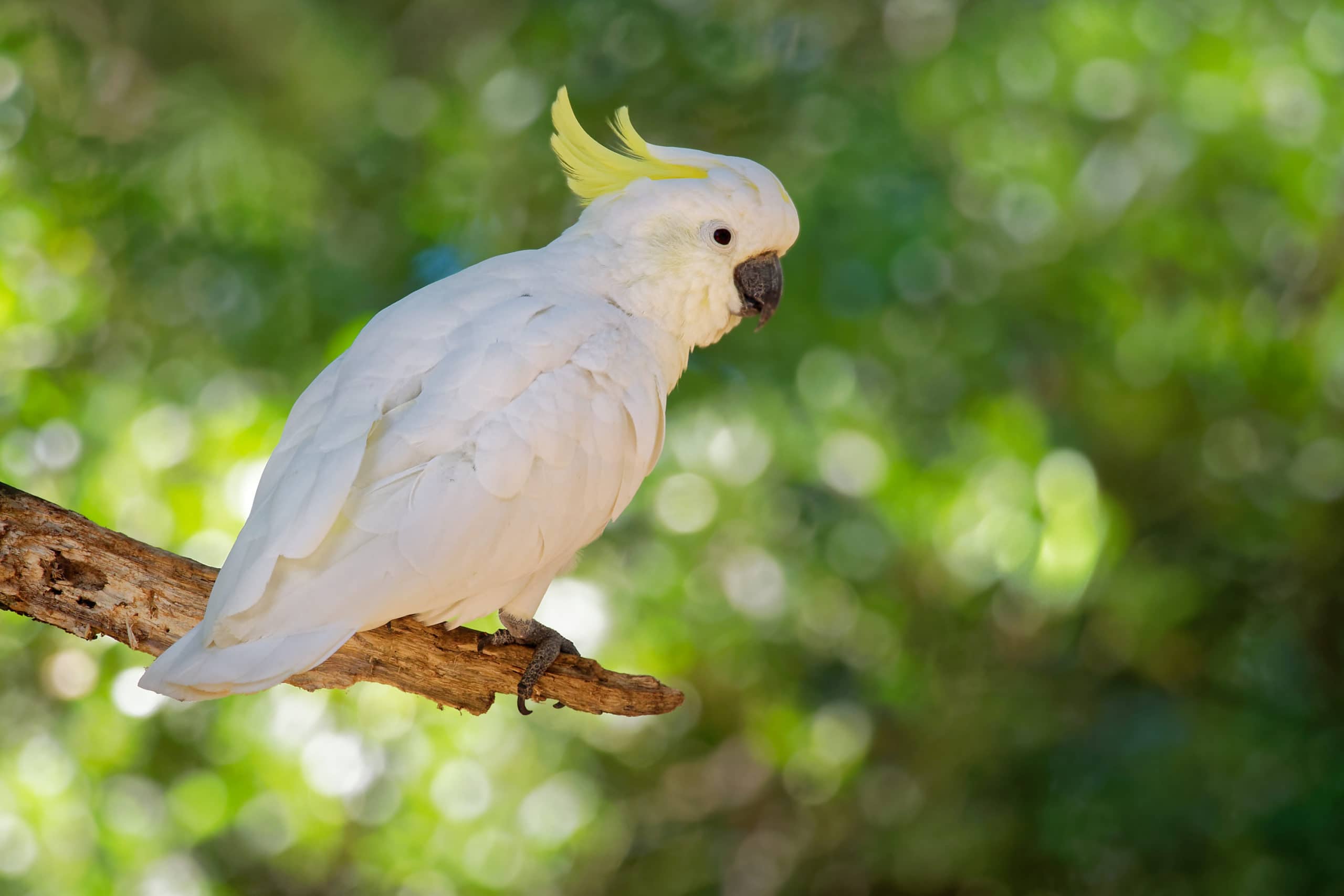
Conures are small to medium-sized members of the parrot family who come in many different colors and sizes. These birds are among the most popular types of pet birds because of their bright personalities and beautiful colors. Blue-crowned conures may not have the dazzling colors of some other conure types, but they are among the sweetest in personality. Fairly easy to care for and highly social, blue-crowned conures make wonderful pets for families and individuals alike. Read on to learn more about these fine feathered cuties!
Species Overview
| Common Names: | Blue-crowned conure, blue-capped conure, sharp-tailed conure, blue-crowned parakeet, blue-hooded conure |
| Scientific Name: | Thectocercus acuticaudatus |
| Adult Size: | 15-16 inches |
| Life Expectancy: | 20-30 years |

Origin and History
The blue-crowned conure is a native South American species. They are found in northern Venezuela and Eastern Columbia as well as in Argentina. In the wild, blue-crowned conures can adapt to a variety of habitats. They are most often found in forests but can also live in grasslands, near rivers, or even the edges of cities. Because they are so adaptable, blue-crowned conures remain widespread in their natural habitat. Blue-crowned conures have also adapted well to life as pets and are one of the most popular and easy-to-find species of conure in the pet bird community.
Temperament
While other conure species might be more colorful, the blue-crowned conure is one of the smartest and friendliest. They are social birds who crave company and attention. If they don’t live with a bird friend, they will need hours of human interaction every day to keep them happy. Blue-crowned conures are intelligent enough to learn tricks and can be taught to talk more easily than other conure species. They are good pets for families because they are social, gentle, and rarely try to bite when properly raised.
However, blue-crowned conures are noisy birds, preferring to communicate by way of loud screeching. They are playful and affectionate birds who will need plenty of toys and exercise to keep them stimulated. These are not birds who are content to live quietly in their cages without regular attention or interactions. They prefer daily time out of their cage, interacting with their human family. Behavior or health problems may occur if the blue-crowned conure is left alone too often or doesn’t get enough daily mental and physical exercise.
Speech & Vocalizations
While they’re considered among the quieter conure species, blue-crowned conures are still noisy birds. Their screeching can be loud and persistent. Because of their intelligence and desire to please, the blue-crowned conure can be taught to be quieter. Ignoring, rather than scolding or punishing noisy behavior, can help blue-crowned conures learn that they don’t get the attention they want by being loud.
One reason blue-crowned conures are such popular pets is their ability to talk. While they aren’t as vocal or easy to understand as other species of parrot, the blue-crowned is one of the few conures who can learn words. With patience, most blue-crowned conures can learn to say a few words or phrases clearly.

Blue-Crowned Conure Colors and Markings
Both male and female blue-crowned conures have similar coloring and markings. Their bodies are green, darker on the head and wings, and lighter on the chest and belly. As their name implies, these birds have blue heads and faces. The undersides of their tails are reddish, with pink feet and legs. Blue-crowned conures also have a ring of white around their eyes.
Because males and females look essentially the same, it’s often necessary to perform DNA testing to determine the sex of an individual bird.
Caring for the Blue-crowned Conure
Housing
Because they are such social birds, blue-crowned conures need plenty of time out of their cages each day. If you are unable to provide this, the bird will need a large cage with plenty of space for them to play and exercise. Keep their cage in a space with some natural light and away from any extreme temperatures. Make sure the cage has plenty of toys, perches, and other mentally stimulating items.
Blue-crowned conures do best with a companion, either another compatible bird or plenty of attention from their human owner.
Grooming
To keep their skin and feathers healthy, blue-crowned conures should bathe weekly. Many of them will bathe themselves if provided a large enough container of water. If not, you may need to spritz them off yourself with warm water. They should also have their nails, feathers, and beaks trimmed as needed to keep them short.
Common Health Problems
Overall, blue-crowned conures are considered healthy birds. One of their most common health concerns is self-mutilation or feather picking. This behavior generally occurs when the birds are bored and don’t get enough attention or stimulation.
Besides feather-picking, blue-crowned conures can suffer from some common bird diseases, listed below:
Diet and Nutrition
The majority of a blue-crowned conure’s diet should be high-quality, nutritionally balanced commercial pellet feed. In addition, the blue-crowned conure needs a variety of fresh fruits and vegetables daily. Tropical fruits and leafy greens are good, healthy options for them to eat.
Eating only seeds or nuts is unhealthy because they are too high in fat. In the wild, blue-crowned conures forage for a variety of foods and their daily diet as pets needs to be as similar as possible.
Any uneaten fresh food should be cleaned out of the cage at the end of the day. Make sure the blue-crowned conure has clean drinking water at all times.
Exercise
Plan to spend several hours a day with your blue-crowned conure out of their cage, engaged in play, training, or even cuddling. They enjoy playing with toys, especially wooden ones that they can chew. Blue-crowned conures are active birds and need daily mental and physical exercise.
If you must leave your blue-crowned conure alone, try turning on the television or radio to keep them company. Blue-crowned conures are intelligent and can be taught simple tricks, which is a great way to bond with your bird.
Where to Adopt or Buy a Blue-crowned Conure
Blue-crowned conures are usually easy to find for sale because they breed so well in captivity. They can be found in pet stores or directly from bird breeders. The price will vary based on the age and socialization level of the birds, ranging from $400-$2,000.
Blue-crowned conures are often available for adoption through exotic bird rescues or even local shelters. The cost to adopt varies as well but will usually be much less than the amount to purchase one.
Conclusion
Blue-crowned conures are easily one of the most charming and social pet birds. Their gentle nature and ability to talk are just part of what makes them such popular family companions. Before you bring a blue-crowned conure into your home, make sure you can meet their need for attention and socialization daily. Also keep in mind that these birds can live up to 30 years or even longer with proper care, much longer than a dog or cat. Blue-crowned conures require quite a time commitment but they will fill the years with a lot of fun and love in return.
Featured Image Credit: Zoltan Tarlacz, Shutterstock









